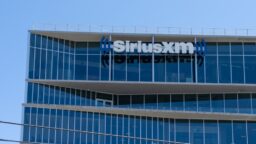A Delaware judge has dismissed a lawsuit against Block, the tech company led by former Twitter CEO Jack Dorsey, over its 2021 purchase of Jay-Z’s music streaming service TIDAL.
The City of Coral Springs Police Officers’ Pension Plan, a shareholder in Block, filed the lawsuit in 2022 on behalf of shareholders, arguing that Block’s board of directors had breached their fiduciary responsibility to shareholders in purchasing what it described as a “failed” music service.
However, in a ruling issued on Tuesday (May 9), Chancellor Kathaleen St. J. McCormick of the Delaware Court of Chancery, concluded that the plaintiffs had failed to ask Block’s board to pursue legal action itself before launching its own lawsuit.
Under Delaware law, shareholders can only sue a board of directors if they can prove that asking the board to sue would be futile because board members “would face a substantial likelihood of liability.”
Block’s purchase of TIDAL “seemed, by all accounts, a terrible business decision,” Chancellor McCormick’s ruling stated.
“[H]owever, a board comprised of a majority of disinterested and independent directors is free to make a terrible business decision without any meaningful threat of liability, so long as the directors approve the action in good faith.”
According to the court documents, which you can read in full here, Block CEO Jack Dorsey came up with the idea to buy TIDAL in August of 2020, while vacationing in the Hamptons with Jay-Z, who partly owns TIDAL, and was identified in court documents by his legal name, Shawn Carter.
Dorsey joined a regular meeting of Block’s board by video-conference, and proposed the idea to acquire TIDAL. The board agreed to convene a transaction committee that would review the proposed acquisition.
In the months to come, the transaction committee would file a series of reports about TIDAL, reporting on what Chancellor McCormick’s ruling called an “unsuccessful” attempt by TIDAL to break into the music streaming business.
“By mid-2020, TIDAL had amassed only 2.1 million paying subscribers, which compared poorly to competitors like Spotify (138 million paying subscribers), Apple Music (60 million), and Amazon Music (55 million),” the ruling stated.
It added: “TIDAL had logged multimillion-dollar losses for each of the preceding ten quarters. Carter personally extended a $50 million loan to TIDAL in 2020.”
“A board comprised of a majority of disinterested and independent directors is free to make a terrible business decision without any meaningful threat of liability, so long as the directors approve the action in good faith.”
Kathaleen St. J. McCormick, Delaware Court of Chancery
The transaction committee also reported on a number of problems that TIDAL was undergoing. Among them was an investigation in Norway – the country where it was initially created – over allegations of “artificially inflating its streaming numbers”, the court document notes.
The company also had a public falling-out with Kanye West, who was an initial shareholder in TIDAL and with whom the DSP had an exclusive streaming contract. West severed his ties with TIDAL in 2017, alleging the company owed him $3 million.
The transaction committee also noted that the company had accrued $127 million in liabilities, mostly from unpaid royalties to record labels.
In answers to questions raised by Block’s board members, the transaction committee said that there was “substantial push back” from senior Block executives to the idea of buying TIDAL, and that “neither of Block’s two business unit leaders, Alyssa Henry and Brian Grassadonia, were advocating for the transaction,” according to the ruling.
Nonetheless, Block’s board approved the acquisition, and the company closed the deal in April 2021.
According to the recent court document, the company “announced the deal on March 4, after which its stock price decreased by 7%”.
The filing adds: “In an 8-K filed two days later, the Company reported that it would pay consideration of approximately $306 million, subject to adjustments, for an ownership stake of approximately 87.5%.
“Block closed the deal on April 30, 2021. In its 10-Q filed on November 4, 2021, Block disclosed that, after adjustments, it ultimately paid $237.3 million for an ownership interest of 86.23%.”
TIDAL was originally launched in 2014 by Swedish firm Aspiro, launching that year in the US, UK and Canada. In 2015 it was bought by a group of prominent musical artists led by Jay-Z. Among other musicians to have taken a stake at that time were Kanye West, Beyonce, Rihanna, Nicki Minaj, Arcade Fire and Calvin Harris. The service marketed itself as the first artist-owned streaming service.
TIDAL has since expanded to 61 countries, and boasts a catalog of 80 million tracks. In 2017, US wireless company Sprint bought a 33% stake in the company for $200 million, implying a roughly $600-million valuation for the DSP at that time.
Block Inc was founded by Dorsey and entrepreneur Jim McKelvey in 2009, Originally called Square, it offered a payments platform for small and medium sized companies that enables them to accept a variety of digital payment systems. This product is still called Square to this day.
Besides TIDAL, Block also owns Cash App, a person-to-person payments app, the buy-now-pay-later platform Afterpay and web hosting service Weebly.
In March of this year, Block became the center of some negative attention, when famed short-seller Hindenburg Research issued a statement accusing the company of inflating its user numbers for Cash App, and enabling fraudulent transactions.
Block aggressively refuted the claims, saying it had verified 44 million of its 51 million monthly users.
“While it’s challenging to arrive at definitive estimates of the amount of fraud and illicit activity, we measure the number of accounts that we “denylist” (a control that prevents, among other things, sending and receiving funds, using a Cash App Card, buying stocks or bitcoin, or taking a loan),” Block said.
“In 2022, approximately 2.4% of Cash App transaction active accounts were denylisted by our Compliance and Risk teams during that year.”Music Business Worldwide





